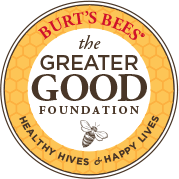Q: Consumers need to know what recycle numbers found on plastics inside the triangle can be put in our recycle bins. Can you clarify which numbers are acceptable and which are not?
A: The number and series of letters on plastics is known as the “resin identification code”. The resin identification code is a plastic industry trademark and it is on just about every plastic item imaginable, therefore it is not a good guide for what is recyclable or not. Recycling markets determine what is recyclable in a community; those are the businesses that get the materials to remanufacturers that can make new products out of the collected material. It is a commodity market, and like other commodities, re-manufacturing requires uniform materials. That is why most recycling programs are moving away from the numbers and referring instead to the plastic container shape. There are consistent markets locally and regionally for plastic bottles, jugs, tubs and jars. Please recycle those. Unfortunately the numbers on plastics do not have anything to do with their recyclability.
Q: Who will recycle shredded paper?
A: No recycler wants to take shredded paper at this time. Shimar Recycling will accept confidential paper to be shredded, but they will not accept already shredded paper. In order to limit the amount of paper needing to be shredded, make sure ONLY sheets with confidential information (social security or credit card numbers, insurance information, etc) are being shredded. Items with your name and address do not need to be shredded.
Q: Can straws be recycled?
A: Straws are not recyclable in your curbside bin, and we aren’t aware of any independent collection sites that take them for recycling. Establishments like the Scrap Exchange or schools might take CLEAN straws for arts and crafts projects. You can reach out to a local school and ask. Otherwise, try refusing straws or bringing your own reusable one whenever possible to reduce waste.
Q: Can Styrofoam packaging be recycled?
A: Not in your curbside bin. Shimar Recycling will take expanded polystyrene (aka styrofoam) packing block only, for a small fee. The larger the load, the lower the fee. They do not accept food service polystyrene or packing peanuts. The ReCollective also sometimes includes styrofoam in their collections, and some grocery stores like Publix collect CLEAN styrofoam food trays and cups.
Q: Can paper towels, napkins, tissues, tissue paper, etc. be recycled?
A: Paper napkins and paper towels can be composted, but should NOT go in your curbside bin. Tissues often have lotions and other additives so they should go into the trash. Try to reuse tissue wrapping paper to keep it out of the trash. There are also reusable cloth towels you might consider using to reduce waste.
Q: How clean must items be before being put in recycling? Is there any acceptable level of food residue on recycling items?
A: You should make every effort to free recyclable material from food debris. Food that comes into the Material Recovery Facility where the recyclable materials are sorted attract and feed vermin such as mice and rats, and cause unpleasant odors. Food debris and liquids are corrosive over time and will degrade, clog and otherwise interfere with the functioning of sorting equipment. Eliminating food from recyclables improves working conditions for people who work at the MRF, and will help equipment run better. That being said, a light rinse to remove any solids is all that is asked by most MRFs.
Q: Should plastic container bottle tops be separated from the container, or should they be screwed in place prior to placing in the recycle bin?
A: It is okay to leave the caps on containers before placing in your curbside bin.
Q: Can you judge whether flexible plastic is recyclable by looking at the recyclable symbol?
A: Nope! Regardless of the plastic number, only bottles, tubs, jugs, and jars are recyclable in your curbside bin if you live in the City or County of Durham.
Q: Where do we dispose of clear plastic wrappers like flower bouquets?
A: If the plastic is stretchy, it can be collected with other plastic film (like grocery bags and bread bags) at participating grocery stores. Remember that plastic film must be clean and dry to be able to recycle. Any NON-stretchy thin plastic is not easily recyclable and should go into the trash.
Q: What is a good way to know whether or not a plastic #5 can be recycled? Is it just the shape?
A: If the item has the #5 resin identification code, it can be recycled as long as it is a bottle, tub, jug, or jar. #5 plastics are polypropylene, often found in yogurt tubs, laundry detergent jugs, stadium cups, bottle caps, and disposable utensils.
Q: Does Sonoco ever discard (send to landfill) entire blue bins of recycling or trucks of recycling because of contamination?
A: If trucks come in and off load at the recycling facility and we determine the load is contaminated, we then have to load this into another container to go to the landfill.
Q: The Sonoco graphic says no aluminum foil. The Durham Waste Wizard says yes aluminum foil. Which one's right?
A: The Material Recovery Facility (Sonoco) separates aluminum cans from the other recyclables through the use of an “eddy current“. It’s basically an electrical charge that causes the aluminum to pop up off the sorting line where it can be blown off by a fan and land in a pile of nothing but aluminum. Clean foil (pans or sheets) balled in such a way to be comparable to the size of an aluminum can will get sorted with aluminum cans. The keys are size, shape, weight, and that it be free of food.
Q: Which plastics are RELIABLY recyclable? The Greenpeace report indicates that only #1 and #2, although less than 30% is recycled. Please talk about whether we should put ANY plastics in our bins?
A: #1 PET plastic bottles (the bottles that water and soda are usually sold in) and jars, and #2 HDPE jugs, tubs and jars are recycled most consistently due to their economic viability. They are remanufactured into products that are purchased and used every day which is what gives recycling commodities their value. It is actually NC State Law that plastic bottles are banned from NC landfills because they are valuable to industries that create jobs and make new products here in North Carolina. If you want to support plastic recycling, purchase products made with recycled content. You can learn more about this topic here, or watch this video.
Q: How do we consider how small businesses can do more for recycling and less toxic packaging?
A: Business owners large and small should definitely be taking more responsibility for the final destination of their products. Ultimately, recycling is not the long-term answer, and reducing the production of disposable plastics is our best bet for a more sustainable future. Locally, programs like GreenToGo are helping restaurants take steps to reduce the amount of disposable containers they create. If there is a particular establishment you’d like to focus on, you could reach out to the owner and have a one-on-one conversation about your concerns. On a broader scale, as consumers we can make a difference by deciding which companies and products to spend our money on.
Q: What happens to yard waste?
A: The City of Durham operates a Type 1 Yard Waste Composting facility where collected yard waste is ground. The single ground material is then transported less than a mile where it is composted with biosolids at the City of Durham Waste Water Treatment North Plant.
Q: Is there a way to home compost when you aren't able to have a compost pile of your own and can't afford a composting service?
A: Composting is easier than you might think! There are several types of manufactured backyard composters available that are relatively easy to use and keep organic material including food scraps contained. Indoor composting with worms can be done even in small apartments. If you don’t want to compost at home, you could see if some neighbors would be willing to go in together on a composting service to save costs. You might also have neighbors who compost regularly who would be willing to take your food scraps, or you can post your unwanted compostables on ShareWaste.
Q: Does Durham have textile recycling? If so, how does it work?
A: Yes! You can bring clean, dry clothes, shoes, accessories (bags, purses, belts,) and linens to the City or County waste management facilities. They are collected by GreenZone. You can also bring these items to any GreenZone container.
Q: Do we have to sort types of batteries for hazardous waste disposal?
A: Lithium batteries should be separate from other household batteries, and have the terminals covered with tape. Otherwise, household batteries can be mixed together. Bring all batteries to the Waste Disposal and Recycling Center, never try to recycle them at the curb.
Q: Do labels cause problems when recycling plastics or glass?
A: No, labels do not cause problems.
Q: How do we get some of the compost created at the City of Durham?
A: The City of Durham contracts with Atlas Organics for composting services. They sell compost to dump truck loads or larger. You can reach their sales staff at 864-415-0105.
Q: Can I wash empty plastic flower pots and dispose of them in recycling bin?
A: Unfortunately plastic flower pots cannot go in your curbside bin. Try keeping those pots to use at home for sharing/propagating plants from your garden. You can also check to see if there is a gardening group near you that would be willing to take unwanted pots.
Q: What does GFL (Green for Life) do with their recycling?
A: GFL brings the recycling to the City of Durham's transfer station, so they end up at Sonoco.
Q: Can the food packaging plastics we bring home, plastic trays, take-home leftover packages from restaurants, etc. be recycled?
A: Unfortunately most of those containers are not allowed in your curbside bin. Since they are so thin, they can get mistaken as paper by the sorter and contribute to contamination of paper bales. The best way to approach this problem is to 1) Avoid those containers as often as possible. Bring your own container when possible, or don’t patronize establishments that use a lot of unrecyclable containers. 2) Reuse the containers you are given. Sturdy containers can be used at home instead of expensive tupperware. They are also great for sending leftovers home from gatherings where you don’t want to worry about getting your containers back.
Q: The city used to have shredding events around the area but I haven’t seen any since COVID. Are they coming back?
A: We are unaware of any plans to restart the shredding events at this time.
Q: Can people bring ALREADY shredded paper to Shimar to be recycled? Is there a charge?
A: Shimar Recycling is not currently taking bags of already shredded paper.
Q: Is textile collection only for clothing, or can people also bring linens?
A: Yes, you can bring linens to recycle with GreenZone.
Q: Can milk cartons and "tetrapaks" be recycled?
A: Yes.
Q: Can small pieces of paper be composted?
A: Most types of paper can be composted (except for glossy paper), however, recycling is a better use of the embodied energy of high grades of paper such as newspaper and office paper. Use leaves as a source of carbon (autumn and early winter is a great time to collect and store leaves for composting). Non-recyclable paper such as paper towels and napkins can be composted. Coated paper plates resist the composting process and also may contain chemicals best kept out of compost. Basically, composting should be thought of as a Soil Health solution, not a Waste Management proposition.
Q: Can prescription bottles be recycled?
A: Not in your curbside bin. Some organizations like The Scrap Exchange will collect them for reuse, and companies like Anything With a Plug will accept them for recycling.
Q: Are clam shell containers recyclable in Durham?
A: Not in your curbside bin. They can be reused, however. Check with your local farmers markets or gardening groups to see if anyone takes clamshells for reuse. Some services like The ReCollective will take them from time to time, also for reuse. Again, refusing to buy products sold in these clamshells is another way around the problem.
Q: What happens when people put recyclables in a plastic grocery bag to recycle?
A: When plastic bags enter the facility at Sonoco where they sort recycling, they can get caught in the machinery that does the sorting and cause the line to slow or stop. They can also damage machinery. Full plastic bags of materials will get pulled off the line and discarded.
Q: How do you wash detergent or toilet-bowl cleaner bottles that cannot be unscrewed?
A: Use up as much as you can and leave the cap on to recycle.
Q: Our apartment building collects recycling in plastic bags. Where does that commercial recycling go? Would it be better to collect recyclables in a bin rather than in a plastic bag?
A: Ask your apartment manager to tell you where the recycling that gets collected goes to be recycled. If it is getting bagged for collection, chances are high they are not actually getting recycled. Bins that can be emptied, and the recyclables collected loose are better for the entire process.
Q: Is the Durham Recycling Wizard continually being updated to get more specific?
A: Yes, it is under constant scrutiny, always trying to improve!
Q: What can we do with packing bubbles or bubble wrap?
A: Recycle these with plastic film at grocery stores. https://www.plasticfilmrecycling.org/
Q: There is some confusion about what is a "tub"? Most are #5 these days. Are those tubs?
A: Yogurt, sour cream, cool whip, etc. comes in #5 plastic tubs. Please recycle them in your curbside bin.
Q: Where is the Durham County landfill and how many years before it is full?
A: The Durham landfill has been closed since 1995. Durham brings their MSW (municipal solid waste) to the Sampson County Landfill, which currently has about 20 years capacity.
Q: Would cut-up old credit cards also be considered shredded paper or okay to recycle in the bin?
A: Cut up credit cards or other plastic cards should go in the trash.
Q: What about recycling dog/cat food bags, chip bags, etc.?
A: These are not recyclable in your curbside bin. However, some pet food companies (such as Wellness) have programs where they will take back their bags for recycling through Terracycle.
Q: Where should we dispose of LED bulbs?
A: Dispose of them in your regular trash.
Q: What should we do with broken glass? (Like a shattered storm door).
A: Call Durham One Call for a Bulky items collection, or otherwise discard with your regular trash.
Q: Can black plastic be recycled? How about the food takeout style containers that are black plastic with a clear plastic lid? Are any plastic takeout containers accepted?
A: Black plastic cannot be recycled in your curbside bin.
Still have questions? We have lots of great information on our Resources page.
















